- Home
- Alice Hoffman
Magic Lessons Page 9
Magic Lessons Read online
Page 9
This is the way it happens. You walk into a room with blue walls. You kiss a man in the garden. You feel your heart and bones and blood. You wait for him like a bird in a cage.
* * *
On the second night they were together John vowed that he loved her, on the third night she was his, on the fourth night he gave her a sapphire on a silver chain that she said she would never take off, on the fifth night he brought her a small packet of diamonds to do with as she pleased. This was what she had seen in the black mirror, her future and her fate. He had presented her with what seemed an impossible gift for a girl such as herself, and yet here were seven small diamonds, shimmering in the palm of her hand. This was her future, a man who promised to cherish her. And so she let him slip his hands beneath her dress in a dark corner of the courtyard, she let him do whatever he pleased, for he said she was his heart’s desire, that he would always adore her. She told him that when they lived together she would plant lilacs outside the door; she would make a special entrance so that Cadin could come and go as he pleased; she would always wear blue, because Hathorne favored it so. Five days of dreams can seem like years, that was how well she thought she knew him. She did not need the sight, and instead let her heart lead her. But on the sixth night he didn’t appear. Maria sat in the courtyard until the sunrise of the seventh day, a number that represents all that is good and all that is evil. There were seven heavens and seven deadly sins, for seven was the most magical number of all, the one that led to wisdom, even for those who would rather remain blind to the truth.
On all other nights Cadin had been locked away, at John’s behest, for they had become enemies. The crow had done his best to chase Hathorne away, dropping stones from the sky and diving to pull his hair. Beware, Cadin had cried, but crows are proprietary creatures and Maria had paid him no mind. Now she went to her room and got down on her hands and knees beside her bed to reach for the black mirror. She had a sinking feeling even before she took the cloth from the mirror and peered into the glass. There was a ship in a cold gray sea. There was a black heart in a garden, among a tangle of weeds. With a single glance she knew the truth. He was gone.
She made her way to the inn where John had been staying, but it was too late, and now that she was clearheaded, with the sight returned to her, she knew it before she found his room was empty. She went to Jansen’s warehouse, and up to his office. No one working there tried to stop her. Not when they saw the dark expression on her face.
“Wat is er mis?” Jansen asked when she appeared at his door. What is wrong?
Maria looked in a panic. Her hair was uncombed, her feet bare. This is what it did to you. This illogical, wildly impractical emotion.
“Waar is je gast naar toe?” she demanded to know. Where has your guest gone? She didn’t sound like a housemaid, rather like a woman betrayed, and such women do not care if their voices rise or if they stare straight into a man’s eyes. Jansen closed the door and stood to face her. He was a big man and he shouldn’t have been anxious.
“Wat is jour zaak daar?” When Maria left, he would acquire another girl to replace her, and hopefully the next one would be more restrained. What is it your business where Mr. Hathorne has gone?
Although she legally belonged to Jansen until January, Maria didn’t care what he might think of her, and she certainly didn’t fear him. She knew more about him than he would have liked, and perhaps this was why he always grew uncomfortable under her heated gaze. Jansen was well aware she didn’t admire him, and that irritated him. He had never especially liked her, for in his opinion, she should have kept her eyes lowered and done as she was told. People said she talked to a black bird that followed her to the market, sometimes in her language, sometimes in his. Now here she was in Jansen’s office when she was meant to be at work in his kitchen.
It had begun to rain, a hard, green rain that would cause mudslides in the northern hills. Maria shivered in the sudden cold wind that burst through the window. She herself had caused the rain, and all over the island small sorrows would grow and children would fuss for no reason so that not even their mothers’ voices could comfort them. They had never seen rain this color before, and some young women collected it in pots so they might wash with it, for green is love and luck, just as it is jealousy and envy.
“Hij is teruggegaan waar his thuishoort,” Mr. Jansen told her with equal amounts of meanness and pleasure. He’s gone back to where he belongs.
Massachusetts. The cold, gray sea. The house with black shutters.
* * *
Maria left the office without another word; she ran along the pier and didn’t stop until she reached the spare chamber that she shared with Juni. She did not know how to reach Hathorne. All she knew was that he lived in a county called Essex, named for the place she had left far behind. To stop wanting him she wrote his name on a white candle and threw it far out to sea, but it was not enough. A witch’s love is not so easily erased. She drank lettuce water, poured whiskey in an iron pot, bathed in salt and vinegar and then with anise seed and bay leaves, and still she could not rid herself of her emotions. Hannah had warned that it was difficult, perhaps even impossible, to work magic upon yourself. The enchantment to forget him would not take.
She worried that he had been lost at sea, as so many were. Or perhaps he had been taken prisoner, or had contracted a disease and could not leave his bed in Massachusetts, not even to write her a letter. Soon enough she herself fell ill, sick to her stomach, vomiting and unable to keep any food down. When she realized her condition, she went to the beach and, in a fury, threw herself into the waves, but she merely floated back to shore, her hair a mass of tendrils trailing out behind her. In that soft sea she realized there was a reason she had known to trek through the Thames estuary, a reason why she had crossed the wide, cold sea. She was destined to save herself, with or without magic. She was destined to face her own future. She had already seen this daughter she would have in the black mirror.
* * *
January came to mark her five years of servitude. She went to Mr. Jansen’s office to collect the official papers that declared she was a free woman. Jansen scanned her face with cold eyes, glad to be rid of her. Juni had been influenced by Maria and was now a dreamy girl who often didn’t come when she was called. The neighbor’s servants vowed that Maria worked spells, and could speak backwards, and wandered late at night in the caves where there were spirits. They could believe whatever they wished; Jansen knew exactly who Maria was and he didn’t care for it one bit. She was sixteen and pregnant. There was no need to know more. The baby had quickened and Maria could already feel it moving inside of her.
“I want the same for Juni,” Maria announced when she was set free from the family. If not, she explained, she would go to Jansen’s wife and tell her the truth she had learned from Adrie. A man should take care of his daughter, and Juni should be given a small house outside Willemstad, one of the many he had acquired. “Hire a housemaid and pay her,” she suggested. “It’s time for Juni to have her own life.”
Jansen cursed Maria Owens, not that it did him the least bit of good, for he feared the knowledge she had. Anyway, she kept lavender in her dress and blue thread stitched through the hem of her petticoat and was protected from his wrath. When she walked away, she owed him nothing. She was happy to move in with Juni and Adrie, who agreed that the three would share a roof. Though the house Mr. Jansen had allotted Juni was tiny, they would make do.
Maria made Hannah’s black soap when the moon was waning, adding local ingredients, aloe vera and hibiscus. It was a hot night and Maria was burning up, using the largest iron pots in the house. The soap was so fragrant bees awoke, birds sang at an hour when they should have been silent, and fussy babies suddenly slept through the night. When she was done making the soap, she fell into her bed and didn’t wake for eighteen hours. It took a huge amount of energy and focus to make this soap, and because of this whoever used it would benefit and appear younger, perhaps by as much
as ten years. In the morning, women from Willemstad and from all over the countryside came to buy the bars wrapped in brown paper, tied with string. Even Adrie was impressed by the profits Maria brought in. She tried the soap herself, and when she looked in a mirror she was surprised to find she was as pretty as she’d been as a girl.
* * *
For three months they lived together, happier than they’d been for a long time. When there was a chore to do, they decided when it would be seen to. They awoke when they wished to, and washed sheets and clothes for themselves, not for the Jansens. Time was slow, with each day a pleasure, but time speeded up and took over eventually. The baby arrived on a night when the moon was hidden behind clouds. It was the windy season, unpredictable spring, but soon the wind died down, which signified good fortune to come. What is a daughter but good fortune, as complicated as she might be. Maria dragged her straw pallet outside, then drew a circle in the dust around her chosen birthing place as protection from evil. Cadin settled onto a low branch, watching every move she made with his sharp eyes. It seemed a long time since he’d found a baby in the snow, wrapped in a blue blanket, her hair as black as feathers. Now the night was hot, and the earth was sand, but the blanket set out for this baby was the same one Rebecca had stitched late at night in the Lockland house. Hannah had folded the blanket into the bottom of Maria’s satchel, dusted with lavender to keep away the moths. As the labor began, Maria took up a pair of scissors. She held up her long black hair that reached to her waist in a single braid and cut it short enough to graze her shoulders, unusual for a woman in this time and place. To have a child she knew she must make sacrifices and this would be the first of many.
On this night she forgave her own mother who had labored alone in the snow and had left her child behind for her own good. In doing so, Rebecca’s heart had hardened. Still, she was the one Maria called for when the worst of the pains came. Adrie told her to breathe and she did so. The old woman had brought a hundred children into the world during her long lifetime, and Maria herself had seen dozens of babes born on Hannah’s wooden table and had often helped with the birthing. Hannah had tied knots in a rope, then cut the rope between those knots into pieces, a spell for an easy birth. Here there was no such tradition, and the labor was hard. Maria asked Juni for a bowl of water, and when she gazed into the bowl it was black and deep. This was the moment when the worlds opened between life and death, the future and the past. She saw a man in the snow who longed for her, and a house ringed by a garden where nightshade and mandrake grew, where the lilacs were so sweet bees came from all over the county to drink from them. She threw the plait of her sheared hair into the fire to mark the death of her old life and the start of the new life to come. The smoke was red, a bloodline passed down from mother to daughter for as long as time existed.
It was March 20, and she wanted her baby to be born before midnight. March 21 was known to be the unluckiest day of the year. Juni and Adrie spread salt on the earth to banish spirits who might wish the baby ill. By then Maria was cursing the world that had made her a woman. But when the child at last arrived, at eight minutes before twelve, everything changed. She had seen her daughter’s face in the black mirror when she herself had been a child, but she hadn’t expected to feel as she did now. Nothing else mattered.
“Beautiful,” Adrie said with approval. All of Adrie’s friends came to view the baby, old women who, too, had once been beautiful. But this baby was something more. They could all tell that was the case, even the ones who were nonbelievers; the most practical, logical, down-to-earth women praised this new life. There was no mistaking that this child had the sight. Her eyes were silver, her hair as red as Rebecca’s. On the back of her left hand was a black mark in the shape of a half moon, the sure sign of a witch.
The baby was soon enough safe in her mother’s arms, wrapped in the blanket stitched with blue thread. Because the future seemed to have opened on this night, and because Maria’s heart had opened as well, she called her daughter Faith. If Hannah had been with them, she would have spoken the truth for Maria to hear on this day that was like no other.
This is your heart that you hold in your hands, be careful with it, don’t lose it, and don’t forget that I loved you the same way even though you weren’t born to me.
* * *
When Faith was five months old, Maria kissed Juni and Adrie good-bye. She wept to leave them, for they had offered her only kindness; all the same her fate awaited her, and she packed her satchel, sewed the diamonds into the hem of her dress where they would be safe from thievery, then went to the docks to search for a ship that would take her to Massachusetts. Before she left, she’d made a pot of Courage Tea, for she would require courage to find her way across the sea. Adrie had fashioned a small traveling basket made from reeds for Cadin, which he hopped into when Maria whistled.
None of the American ships would take her on, for a baby was not welcome on board, and its cries and ailments were said to bring nothing but bad luck. Fortunately there was another possibility. The Jews here had founded the first synagogue in this part of the world, and the first cemetery was founded in 1659, called Beth Haim, “House of Life,” where the tombs were made of coral. Their settlement, the Plantation of Hope, had flourished; still many of their people had taken to the sea, carrying Torah scrolls from synagogues that had been burned to the ground in Spain and Portugal.
Many were merchants and translators and traders, but some of those who were sailors were actually pirates whose targets were Spanish ships; they felt it was their duty to take revenge on the country that had tortured and murdered their people. The Portugals were after gold and goods, but they also were known for transporting books, including outlawed literature that was said to incite slaves. There had been those who boarded their ships to steal their bounty, only to find wooden crates of books, worthless to some, a treasure to others.
There had been Jewish pirates reported by Josephus in the first century, and Jews had often lived at sea, especially when there was no country that would allow them entrance. Sinan, who sailed with the famous Barbarossa, had done his best to smash the Spanish fleet. Yaacov Kuriel had led the fleet, until he was imprisoned during the Inquisition. Many of these men had gold studs in their ears, often to mark a life that had been lost. They often hid their true identities, though there were some who recognized the gold chains they wore with charms imprinted with the Hebrew letter Hey. They made sausage from chicken, so if they were challenged and asked to eat pork to prove they were not of the tribe of Israel, they had their own false meat. These men journeyed to the ends of the earth, with many going as far as the Barbary Coast, where they often threw in with Moorish pirates in North Africa, who lived on a diet of blood rice, made with the blood of the lamprey eel, a creature older than the shark, a living fossil.
The sailors were a rough lot who felt they had little to lose, other than their own lives. Adrie had told Maria to stay away from them, but when Maria was turned down by the other ships, she searched out the captain of a schooner called the Queen Esther, bound for New England. The ship was set to trade in Newport, Rhode Island, where there had been a Jewish community since 1658, but the first port would be Boston, for there was a great market in that city for the rum they carried in the hull, huge barrels that gave off such a fragrant aroma sailors on board were said to grow drunk even when they hadn’t touched a drop.
The captain, Abraham Dias, was about to suggest that Maria go home, keep her daughter safe, and leave the sea to men, when his son Samuel collapsed on the dock. Samuel wore a heavy black coat decorated with buttons made from the backbone of a shark, and beneath that a waistcoat, a heavy linen shirt, and leather breeches. Even though the day was fine, he was so ill that he shivered in the bright sunlight, his olive skin turning ashy, dark hollows beneath his eyes. Still, he was a handsome man, with a tough, lanky body and a sailor’s strong arms and back. His long, densely black hair was slicked back and tied with a leather string. He wore three piece
s of gold in the inner flap of his ear, marking the lives of three people he’d loved and lost to the cruelty of the world. He was young, having recently turned twenty-three, a number he’d always considered to be lucky, although he’d begun to wonder about his luck. He’d recently been stricken by dengue, a disease many called breakbone fever, for it caused the afflicted person’s bones to ache as if they were indeed breaking with pain that was unbearable. Frequently, those who had been stricken hemorrhaged and spat blood. In the end many went blind and lost all ability to move. There were those who took their own lives rather than endure the agonies the fever caused. Some who survived vowed that the illness made them feel that they’d been made of glass and a hammer wielded by a thoughtless enemy had been used to shatter them, body and soul. The disease was contracted in swampy mosquito-ridden areas, and the islands nearby were rife with such places, marshy landscapes where clouds of insects rose into the dull illumination of the dusk, turning the sky into a fluttering dark that was more dangerous than most battlegrounds, with casualties initiated by an enemy the combatants had never spied.
Samuel Dias was leaning against the railing of the dock, his eyes glazed with pain. He could be charming or brash, depending on what the occasion called for, and was such an excellent navigator there were those who vowed he used black magic to guide him, when in fact he had a deep knowledge of mathematics and of the constellations that he used to map both the sky and the sea. Abraham Zacuto, a Jewish professor of astronomy and navigation, had created a table of celestial positions that allowed sailors to find their way even when they could not chart by the position of the sun, and most explorers had a tradition of sailing with Jewish navigators and mathematicians on board. Samuel Dias had been born in Spain, escaped to Portugal, then had been raised at sea. He had dark, gold-flecked eyes, and could speak six languages; he would have been more than happy to talk to a beautiful woman such as Maria if he hadn’t been struggling for breath. Samuel could taste blood in his mouth, and when he looked into the sea he spied a black eel turning in its death throes and thought perhaps it was a sign and that he was foreseeing his own demise. He’d vowed right then that if God granted him life he would change his ways. He was wild and young, but that didn’t matter anymore. He was in the hands of the Almighty, and, if he should survive, he would start life anew as a more serious, less arrogant man.

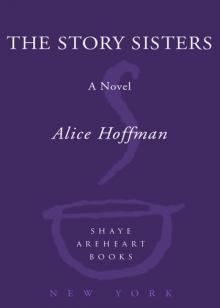 The Story Sisters
The Story Sisters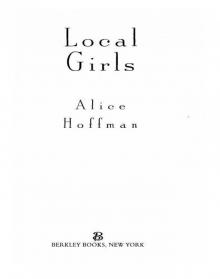 Local Girls
Local Girls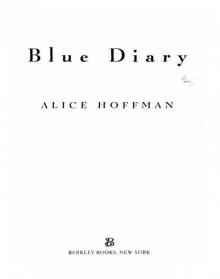 Blue Diary
Blue Diary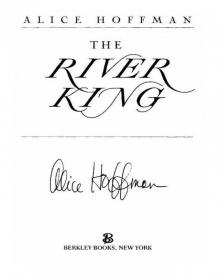 The River King
The River King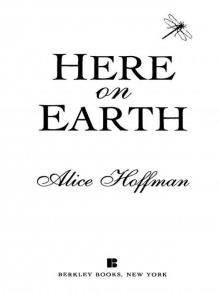 Here on Earth
Here on Earth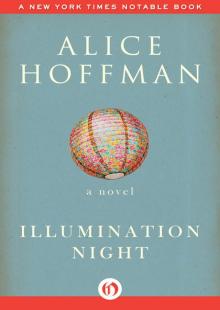 Illumination Night: A Novel
Illumination Night: A Novel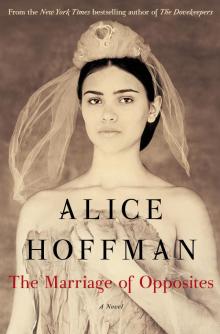 The Marriage of Opposites
The Marriage of Opposites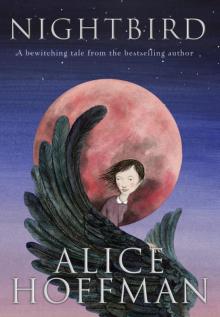 Nightbird
Nightbird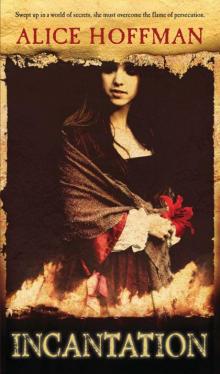 Incantation
Incantation Skylight Confessions
Skylight Confessions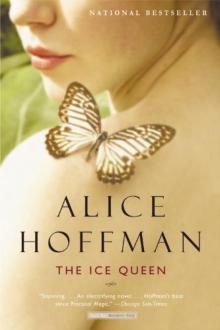 The Ice Queen
The Ice Queen Second Nature
Second Nature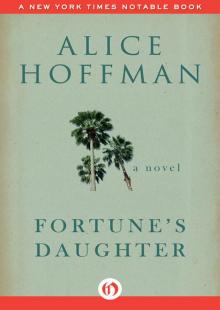 Fortune's Daughter: A Novel
Fortune's Daughter: A Novel Seventh Heaven
Seventh Heaven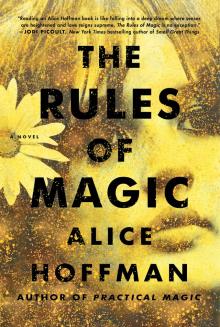 The Rules of Magic
The Rules of Magic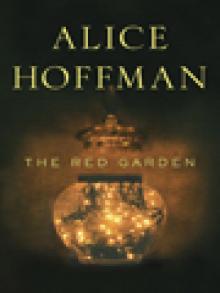 The Red Garden
The Red Garden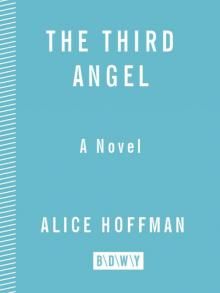 The Third Angel
The Third Angel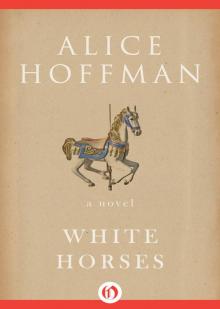 White Horses
White Horses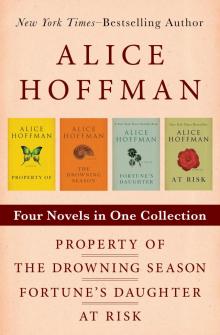 Property of / the Drowning Season / Fortune's Daughter / at Risk
Property of / the Drowning Season / Fortune's Daughter / at Risk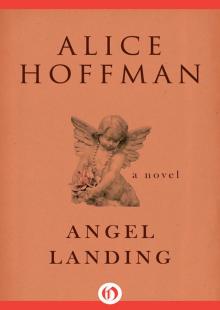 Angel Landing
Angel Landing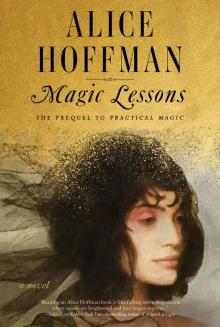 Magic Lessons
Magic Lessons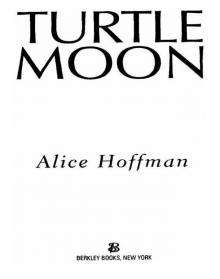 Turtle Moon
Turtle Moon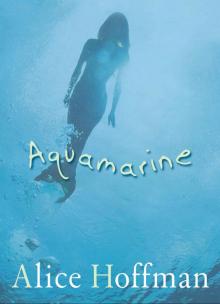 Aquamarine
Aquamarine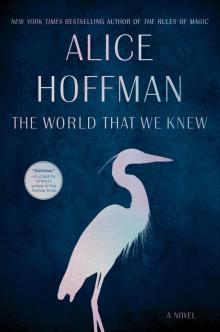 The World That We Knew
The World That We Knew Faithful
Faithful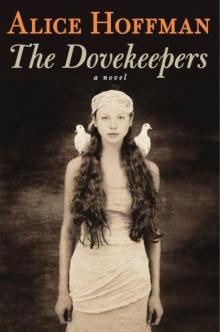 The Dovekeepers
The Dovekeepers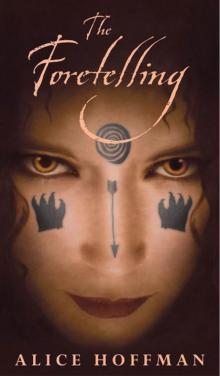 The Foretelling
The Foretelling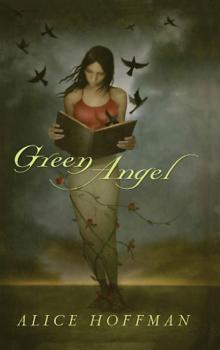 Green Angel
Green Angel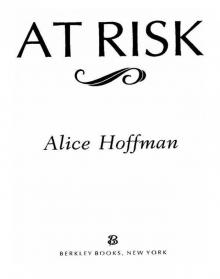 At Risk
At Risk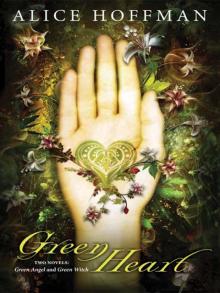 Green Heart
Green Heart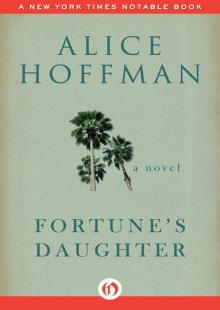 Fortune's Daughter
Fortune's Daughter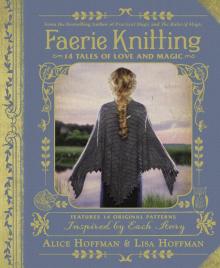 Faerie Knitting
Faerie Knitting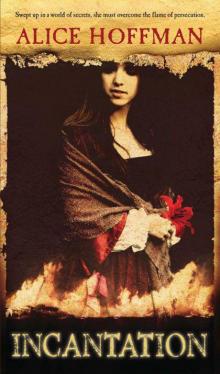 Incantation (v5)
Incantation (v5)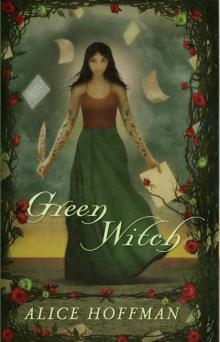 Green Witch
Green Witch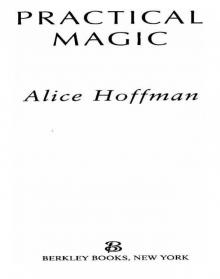 Practical Magic
Practical Magic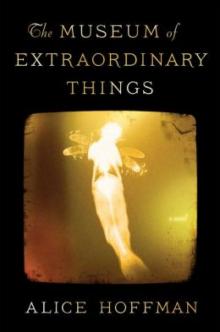 The Museum of Extraordinary Things
The Museum of Extraordinary Things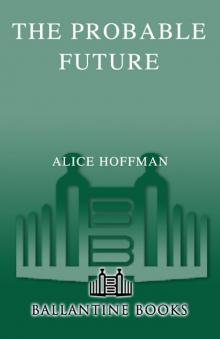 The Probable Future
The Probable Future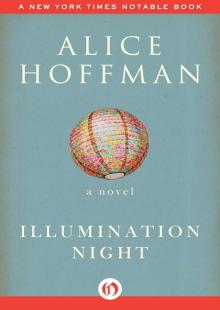 Illumination Night
Illumination Night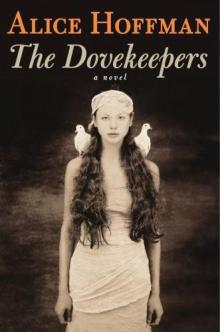 The Dovekeepers: A Novel
The Dovekeepers: A Novel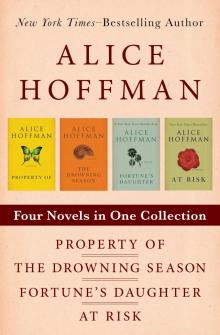 Property Of, the Drowning Season, Fortune's Daughter, and At Risk
Property Of, the Drowning Season, Fortune's Daughter, and At Risk